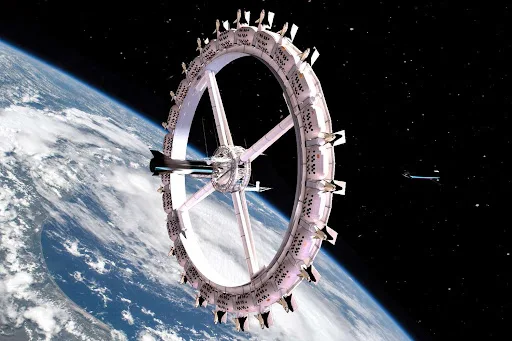Blast Off: A Look at the Exciting Future of Space Travel
The final frontier is beckoning, and with leaps in technology, the future of space travel promises to be extraordinary. Here's a glimpse into what's on the horizon:
From Tourists to Tenants: The Rise of Space Stations
The International Space Station (ISS) may soon have company. With China's Tiangong station already operational, and NASA planning a new one in the late 2020s or 30s, space will become more bustling. These stations will serve not just as research labs, but potentially as stepping stones for deeper exploration.
Back to the Moon... and Beyond!
We're set to return to the Moon in a big way. The Artemis missions aim to land the first woman and the next man on the lunar surface by 2024. But this isn't just a repeat performance. The Moon could be a valuable resource base, and missions aim to establish a long-term presence there, potentially paving the way for an even more ambitious target: Mars.
Setting Course for Mars: The Red Planet Beckons
Mars is the ultimate destination for human space travel. The challenges are immense – the long travel time, the harsh Martian environment – but numerous space agencies and private companies are vying to be the first to put boots on red soil. Technologies like reusable rockets and advanced life support systems are being developed to make this dream a reality.
Space Tourism Takes Flight
Space travel is no longer just for astronauts. Companies like Virgin Galactic and Blue Origin are offering suborbital flights, giving regular folks a taste of weightlessness and a breathtaking view of Earth. As the industry matures, orbital space tourism could become more commonplace, allowing people to spend days or even weeks in space.
Warp Speed or Bust: The Quest for Faster Travel
The vast distances of space pose a major hurdle. While chemical rockets are reliable, they're slow. The future might see a breakthrough in propulsion systems. Technologies like nuclear thermal rockets or even theoretical concepts like warp drives could drastically reduce travel times, opening up more of the cosmos for exploration.
The future of space travel is brimming with possibilities. From celestial tourism to establishing a foothold on other worlds, the next chapter in humanity's cosmic journey promises to be an exciting one.


